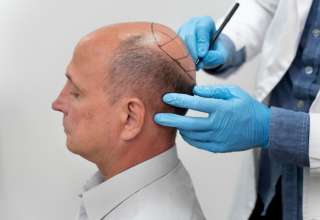Hip pain is a common condition that can be caused by various reasons. Problems within the hip joint tend to appear on the inside of your groin or your hip. On the other hand, outside hip pain on the outer buttock or outer thigh is caused by issues with tendons, ligaments, muscle, and other soft tissues that surround your hip joint.
The hip is one of the strongest parts of the body. However, most hip injuries often happen unexpectedly and violently. Another factor in which hip pain or injuries aggravate is to who it happens to; whether they’re geriatric, or if they’re a baby or a toddler. Here are some more conditions that will help you understand more about hip pain.
Sports Hernia or Athletic Pubalgia (Core Muscle Injury)
A sports hernia is painful where soft tissue injury occurs in the groin area. It often happens when a sport requires intense twisting movements or sudden changes in directions.
Contact sports such as wrestling, ice hockey, and football may cause a tear on the soft tissue on your groin area. Usually, it will cause severe pain in the groin area. The pain gets better with rest, however, the pain might get worse when you return to sports activity.
Always consult a doctor when you have hip problems resulting from doing contact sports. Hip pain can be a precursor to much more severe health problems.
Hip Labral Tear
A hip labral tear involves the labrum – the ring of cartilage and the soft tissues that cover the socket or acetabulum of the hip joint. Structural problems or an injury may cause a hip labral tear. This ring of cartilage acts like a rubber seal to hold the ball at the thigh bone to secure your acetabulum. If you have a labral tear, you should consider wearing hip braces for pain.
Some sports activities such as football, ice hockey, and ballet make you more prone to a potential hip labral tear. A hip labral tear cause symptoms and you may experience the following:
- Pain in your groin or hip area
- Stiffness
- A locking or clicking sound in the groin area
Hip Flexor Tendonitis
Hip flexor tendonitis occurs when a muscle is overused. Tendons perform an essential role by keeping the strong the muscles attached to the thigh bone or femur as your legs move.
Athletes in sports that require intense squatting, weight lifting, and high kicking are at a higher risk for Hip Flexor Pain. A hip flexor tendonitis symptoms include the following:
- Soreness in a particular area of your body
- Pain in the front of your hip or groin
- Tenderness due to swelling
Trochanteric Bursitis
Hip bursitis is the inflammation of the bursa. Bursa also is known as “Bursae” are small, jelly-like sacs located throughout the body. They contain synovial fluid in between soft tissues and bones which act as a cushion to help lessen friction. Infection of the bursa is called trochanteric bursitis.
Bursitis may affect anyone, but it is common in elderly or middle-aged people. Less common in younger men and people. The pain of trochanteric bursitis is at the point of the hip. Usually, it expands to the outside of the thigh area. Later, the pain may spread to the larger areas of the hip.
Gynecological or Pelvic Floor Issues
Your pelvic floor is a group of muscles in the pelvic area. These muscles have an essential role in the pelvis; they support the organs and form a sling around the rectum. Traumatic injuries in the area of pelvic such as accidents or giving birth can cause pelvic floor problems.
The following are symptoms of pelvic floor issues:
- Back pain in the lower area
- Straining pain
- Frequently need to urinate
Osteoarthritis
Osteoarthritis is the most common complaint of millions of people worldwide. It happens when the cartilage of your bones wears down. Osteoarthritis commonly affects joints in your knees, spine, hands, and hips.
However, osteoarthritis can be prevented by staying active and maintaining a balanced diet and weight may slow the development of the disease. Signs of osteoarthritis include the following:
- Pain – you may feel hurt during or after movement in the joint.
- Stiffness – may noticeable during in the morning when you wake up.
- Grating – may feel a sensation when you use your joint.
Hip Impingement or Femoroacetabular Impingement (FAI)
Hip impingement is a condition in which extra bones develop, giving the bones an irregular form. Due to an abnormal shape and size, movements are affected. The bones rub against each other during movement, causing discomfort and pain when moving.
The common symptoms of hip impingement include:
- Limping
- Pain
- Stiffness
Takeaway
Your hip has a vital role in your body. The hips are responsible for supporting your gait, weight, and enables you to move. To keep your hip healthy and reduce any potential hip pain, you need to control your weight, do yoga regularly as much as possible, do stretching before playing, and check-ups if you feel a sudden pain in your hip.
It’s also best if you rest for a good period of time when you’re into high contact sports such as basketball and wrestling. Usually, hip injuries happen when muscles and joints are overworked. Always remember to consult your doctor when experiencing unusually persistent pain in the hip area as it may lead to other severe problems.











